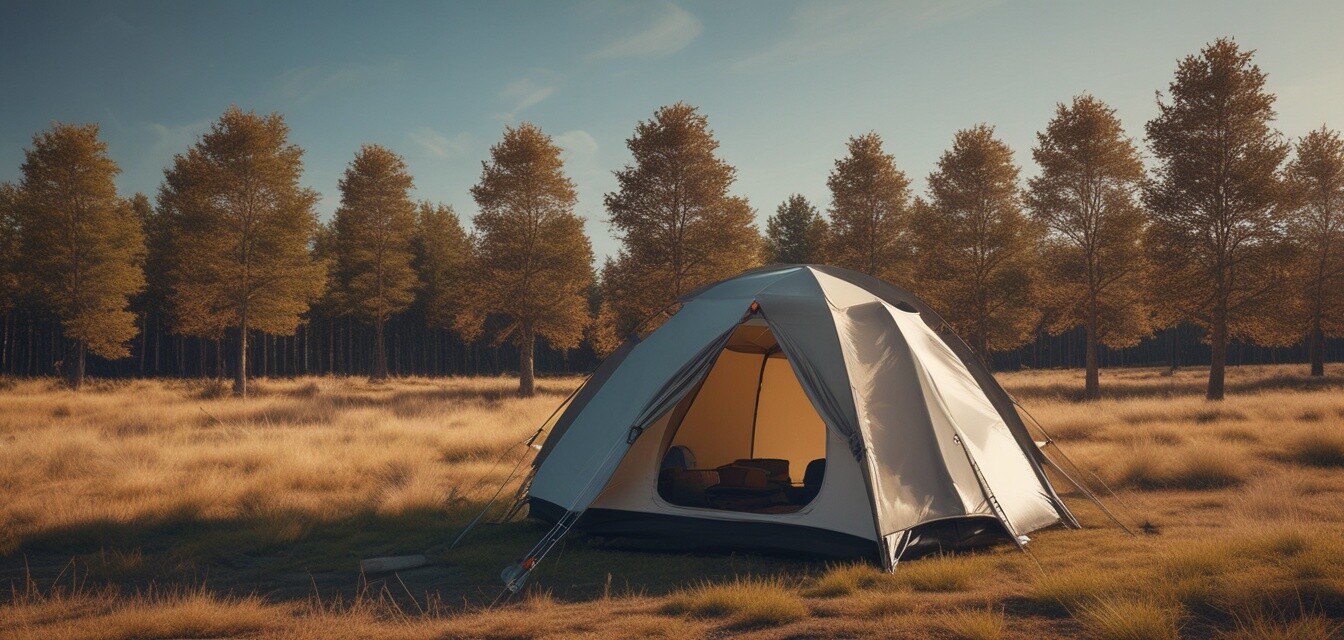
Ensuring Reliable Power with Solar Camping Gear
Key Takeaways
- Understanding solar panel positioning is crucial for maximum energy absorption.
- Regular maintenance ensures longevity and efficiency of solar camping gear.
- Incorporating energy-saving practices enhances power reliability.
- Knowledge of compatible solar accessories can broaden your camping capabilities.
Embarking on a camping adventure with solar-powered gear can significantly enhance your outdoor experience. However, to make the most of your solar camping gear, it's essential to ensure that it provides reliable power throughout your trip. In this guide, we will delve into various tips that help optimize the performance of your solar-powered gear, ensuring you have the energy you need to enjoy the great outdoors.
Understanding the Basics of Solar Energy
Before we dive into the tips, let's explore the basics of solar energy. Understanding how solar panels work will help you maximize their efficiency during your camping trips.
- Photovoltaic Cells: Solar panels consist of photovoltaic cells that convert sunlight into electricity.
- Energy Storage: Properly sized batteries are essential for storing generated energy for later use.
- Inverter Usage: An inverter is necessary for converting DC power to AC power for most camping devices.
Tips for Maximizing Your Solar Camping Gear
1. Positioning Solar Panels Correctly
One of the most crucial factors in maximizing your solar panel efficiency is their positioning. Here’s how to get it right:
| Tips for Positioning Solar Panels | Best Practices |
|---|---|
| Angle | Adjust panels to a 30-degree angle for optimal sunlight capture. |
| Orientation | Face panels toward the sun’s path for maximum exposure throughout the day. |
| Shading | Ensure that there are no obstructions (trees, rocks) casting shadows on your panels. |
2. Regular Maintenance of Solar Gear
To ensure that your solar gear operates efficiently, regular maintenance is essential. Here are some tips:
- Clean panels periodically with a soft cloth to remove dirt and debris.
- Check for any signs of wear and tear on cables and connections.
- Ensure battery terminals are corrosion-free and properly connected.
3. Incorporating Energy-Saving Strategies
Even the best solar gear can struggle if you’re using too much power. Here are ways to save energy:
- Use LED lights instead of traditional bulbs to minimize power consumption.
- Limit the use of high-energy devices like electric kettles or hair dryers.
- Practice good energy management, like turning off devices when not in use.
4. Utilizing Compatible Solar Accessories
Expanding your solar gear with compatible accessories can provide more robustness during your trips:
- Consider using solar lanterns for efficient lighting.
- Portable power stations can store excess energy for multiple devices.
- Solar cookers can help you prepare meals without draining battery reserves.
5. Preparing for Changing Weather Conditions
Weather can impact the efficiency of your solar panels; therefore, being prepared is key:
- Invest in protective gear for your panels, like weatherproof covers.
- Know the local weather forecasts to adjust your camping plans accordingly.
- Have a backup power solution in case of prolonged cloudy weather.
Important Considerations When Using Solar Camping Gear
As you make plans for your next outdoor adventure, consider these additional aspects:
- Choose lightweight solar gear for ease of transport.
- Ensure all your solar gear is compatible with each other to prevent issues.
- Keep an energy consumption log to track what works best for your trips.
Pros
- Eco-friendly energy source reduces your carbon footprint.
- Reliable power for electronic devices while enjoying the outdoors.
- Ability to camp off-the-grid and at remote locations.
Cons
- Initial setup costs can be higher compared to traditional camping gear.
- Less efficiency during overcast conditions.
- Requires basic understanding of solar technology for effective use.
Conclusion
By following these tips, you can ensure your solar camping gear provides reliable power, enhancing your camping experience. Whether you're a beginner or an experienced camper, understanding the importance of solar energy and its management will make your outdoor adventures even more enjoyable. For more insights, check out our Buying Guides or explore the latest News and Trends in solar camping gear.